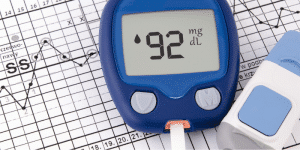Older men are not only fighting against time, but also against rising blood sugar levels. New research shows that a slight increase in metabolic markers such as glucose has a greater impact on declining sexual health than age or testosterone levels alone. The results of a six-year study of otherwise healthy men show that even slight changes in blood sugar levels that are not yet in the diabetes range can impair sperm motility and erectile function. But there is also good news: with a positive lifestyle and proper medical care, men can enjoy healthy reproductive function well into old age.
Reduced Sperm Motility and Erectile Dysfunction May be Linked to Elevated Blood Sugar Levels
Metabolic health factors, including a slight increase in blood sugar levels, are the main causes of changes in the reproductive system and sexual function in aging men, according to a study presented at ENDO 2025, the annual meeting of the Endocrine Society in San Francisco, California. “Although age and testosterone levels have long been considered triggers for declining sexual health in men, our research suggests that these changes are more likely related to a slight increase in blood sugar levels and other metabolic changes,” said Dr. Michael Zitzmann, professor and doctor of medicine at Münster University Hospital. “This means that men can maintain or restore their reproductive health through appropriate lifestyle choices and medical interventions.”
These conclusions are based on a long-term study of healthy men (without diabetes mellitus, heart disease, and/or cancer) aged 18 to 85, which began in 2014 with 200 participants and was completed in 2020 with 117 participants. The researchers examined progressive changes in the participants’ sperm and hormone profiles, their erectile function, and their metabolic health (BMI and blood sugar levels, measured using the HbA1c test). The results showed that hormone levels and sperm parameters remained largely within the normal range over time. However, sperm motility and erectile function decreased in men with minimally elevated blood sugar levels below the diabetes threshold of 6.5% HbA1c. The study also found that while testosterone levels did not directly affect erectile function, they did correlate with participants’ libido ratings. The researchers hope that the information gained from this study will help doctors and their patients develop effective plans for maintaining male sexual health. This research was conducted as part of the FAME 2.0 study.





